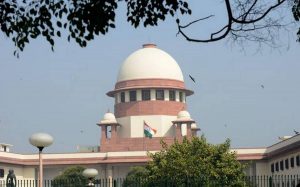10.5% Internal Reservation To Vanniyakula Kshatriya Community In Tamil Nadu:

The Supreme Court struck down the 10.5% internal reservation to Vanniyakula Kshatriya community in Tamil Nadu.
- The Supreme Court held that 10.5% internal reservation to Vanniyakula Kshatriya community violates the fundamental rights of equality, non-discrimination and equal opportunity of 115 other Most Backward Communities (MBCs) and De-Notified Communities (DNCs) in Tamil Nadu.
- The allotment of 10.5% reservation to a single community from within the total Most Backward Classes (MBC) quota of 20% in the State, leaving only 9.5% to 115 other communities in the MBC category, was without “substantial basis”.
- Further, the court said there was no assessment or analysis done prior to the 2021 Act to back the claim that the Vanniyakula Kshatriyas were relatively more backward than the other MBCs and DNCs.
- The court underscored that while caste can be the starting point for internal reservation, it is incumbent on the State government to justify the reasonableness of the decision.
- Though the court held the 2021 Act and its percentages of reservation unconstitutional, it upheld the legislative competence of the State to enact a law sub-classifying and apportioning percentages within identified backward classes.
Vanniyakula Kshatriya Reservation:
- Reservation in Tamil Nadu comprises 69% under a 1994 Act protected under the Ninth Schedule of the Constitution.
- Out off the 69%, backward classes, including Christians and Muslims, get 30%, MBCs get 20%, Scheduled Castes 18%, and Scheduled Tribes 1%
- The Vanniyakula Kshatriya reservation was provided under the State within the reservation for the Most Backward Classes and Denotified Communities Act, 2021.
- Vanniyakula Kshatriya (including Vanniar, Vanniya, Vannia Gounder, Gounder or Kander, Padayachi, Palli and Agnikula Kshatriya) community.
- The second Tamil Nadu Backward Commission in 1983, held that the population of Vanniyakula Kshatriyas was found to be 13.01% of the State’s total population.
- Therefore, provision of 10.5% reservation to a community with a population of 13.01% could not be called disproportionate.




